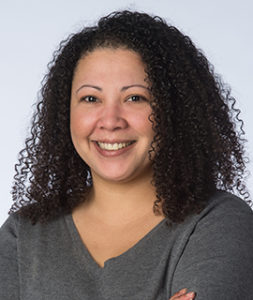
Home » Employee generosity grows with expanded options
Employee generosity grows with expanded options
Businesses engage variety of methods to encourage giving

May 25, 2023
Employers in a variety of industries say philanthropy is embedded within their company’s culture, and learning what inspires employee giving can result in increased financial support.
Workplace fundraisers at some companies in the Spokane area have shown an increase in participation or funds donated when employees are given more choices regarding causes and organizations to support, some business leaders here say.
Brady Cass, president of Spokane-based health care plan provider Asuris Northwest Health, says companies that select the organizations for their employees to support might unintentionally reduce potential total contributions.
“They may choose three or four well-intentioned, great nonprofits and say this is who we're supporting, but that may limit somebody’s desire to (provide) support,” says Cass.
Kristine Meyer, community investment and foundation manager at Avista Corp., says that while the company doesn’t offer in-house fundraising campaigns specifically, it does encourage employees to donate and volunteer to qualifying organizations.
“We’ve found that our matching programs are the best way to respond with flexibility to support our employees’ varied interests,” Meyer says. “To underscore our employees’ giving, we have the Avista Foundation-sponsored Matching Gifts Program that matches employee gifts dollar-for-dollar to qualifying nonprofit organizations and higher education institutions.”
Companies sometimes experience a boost in donations by adding visual reminders of a campaign’s funding goals.
Indy Dehal, principal at Spokane-based ALSC Architects PS, says charitable campaigns in the workplace can benefit by having visual reminders posted around the office, such as a goal tracker.
Other times, offering treats can help revive support for a cause, Dehal says.
“Sometimes it’s just bribing people with a breakfast,” he says, laughing.
About 85% of ALSC’s 38 employees participate in the architectural firm’s annual workplace campaign that supports Spokane County United Way—a partnership in place for over 25 years now, Dehal says.
Lisa Curtis, director of marketing and communications at Spokane County United Way, says the nonprofit has learned how to rally support from employees of its partner businesses through in-person advocacy and providing research data of community needs and the direct impact of fundraising efforts.
Spokane County United Way is a nonprofit organization that recruits donors and collaborates with individuals and organizations to support the health, education, and financial stability of community members. It partners with over 600 businesses annually to provide employees a chance to give through a workplace campaign, according to the organization’s website.
“That’s the role of United Way,” she says. “It's knowing the needs of the people in our community through data and then also understanding what our companies need for their own workplace to really lift up the employee culture.”
Robin Bernhart, vice president of operations at Landmark Restaurants in Spokane, says the company currently raises funds to support Big Table.
“We currently raise funds for Big Table through employee donations, which the company matches 100%,” Bernhart says. “Our employees also have a payroll deduction for—and donate regularly to—local nonprofit events.”
Landmark’s staff also gives to Vanessa Behan Crisis Nursery, local elementary schools, Second Harvest Inland Northwest, Meals on Wheels, Salvation Army Spokane, Union Gospel Mission, Joya Child & Family Development, and Spokane Neighborhood Action Partners, says Bernhart.
As previously reported in the Journal, Big Table gave direct assistance to 751 people in Spokane last year, helping workers in the restaurant and hospitality industries with housing stability, physical and mental health care needs, addiction, employment, and life coaching.
“We started our donations for Big Table and Needy Family in 2021,” Bernhart says. “We donated $10,000 to Big Table. These monies are raised annually and donated in December.”
Aside from monetary donations, many businesses also support their employee’s volunteering efforts.
Dehal notes that ALSC also supports staff volunteerism by encouraging employees to use up to two hours per week of paid time to serve a community organization of their choice.
“This is 104 hours per year per employee, totaling close to 4,000 hours,” adds Dehal.
He says that during his 25-year tenure with ALSC, the biggest lesson he’s learned is to approach the goal as a team.
“It reinforces that that's who we are as an organization. Teamwork and collaboration are how we do all of our work here,” says Dehal. “When we apply that to fundraising, it seems to go a long way. We tend to do a much better job as a team.”
Cass says Asuris encourages volunteer work with financial incentives, although employees are quick to take any opportunities to volunteer as well.
“The organization will make a cash contribution on an hourly basis based upon the amount of time that employees give to the organization,” explains Cass.
He says Asuris and its employees have worked to support the Tree of Sharing for nearly 20 years; first through sponsorship, followed later by hands-on work for the nonprofit where Asuris employees help sort and distribute thousands of donated gifts to the community.
Cass adds that Asuris employees, “pick anywhere from 20 to 50 tags, bring them back to the office, and we go fulfill those gift request, which is a pretty amazing feat for a team that has about 15 people in Spokane.”
In the last five years, Asuris employees have raised $56,000 including a 50% company match, in addition to 260 hours of volunteer time to support 45 local nonprofits, such as Tom’s Turkey Drive, Habitat for Humanity, and Maddie’s Place.
“For us, it's more than just dollars and cents. It's that tactical hands-on (approach) to actually make a difference,” says Cass.
Meyer, of Avista, says, “Through the Dollars-for-Doers Program, employee gifts of volunteer hours to qualifying nonprofit organizations and higher education institutions are eligible to be matched at $10 per hour up to $200 annual maximum per employee. These matching programs allow the company to increase the impact of that investment.”
Company culture plays a significant role in workplace giving results as well, many business leaders here agree.
Curtis says Spokane County United Way has been operating in the community for over 100 years and has the experience needed to help companies meet their philanthropic goals for fundraising or volunteering.
“There’s no way a nonprofit can be the sole mission driver without people saying, ‘yes, I believe in this,’” says Curtis.
She agrees that the value of philanthropy often is embedded in a company culture. For example, she says Spokane County United Way and Avista Corp. are longtime partners that collaborate to educate donors on the importance of giving.
“Avista has been a 100-year partner,” Curtis says. “There’s an entire team that comes around to drive the campaign and the advocacy. There’s a learning component about the community so that people really understand where their dollars are going when they give.”
Dehal, of ALSC, says, “We just encourage everybody to participate, so we have a culture of giving in our office that all stems from our founder, Tom Atkinson, who believed in giving back to the community that gives so much to us.”
ALSC was founded 75 years ago, and throughout this year, the company is celebrating the milestone with a year of gratitude.
“Right now, we’re doing 75 acts of gratitude,” Dehal says. “Everybody brainstormed and came up with ideas, and then we created this big list of things we’re going to do. We’re already starting to check some of those off of our list.”
Dehal declines to disclose the company’s annual total contributions.
“We don’t give so that we can get the recognition,” he adds.
Cass, of Asuris, says that employees who are attracted to come to work for the company are servant leaders by nature, which is important for the culture of the company, and its parent company Cambia Health Solutions.
“We are very fortunate that our parent company, Cambia Health Solutions, supports us,” he says. “They give us the time to donate. They give us that employee match to donate. They encourage us to find those causes that are important to us.”
Bernhart, of Landmark Restaurants, says that when people take part in something bigger than themselves, they feel the power to help make a difference for someone less fortunate than them.
She adds that Landmark Restaurant’s philanthropic goals include the continued support of Big Table.
Landmark Restaurants operates two Frank’s Diner restaurants and a pair of The Onion restaurants. The company has offered a voluntary payroll deduction and owner match for employees since 1978.
Latest News Up Close Banking & Finance
Related Articles
Related Products




